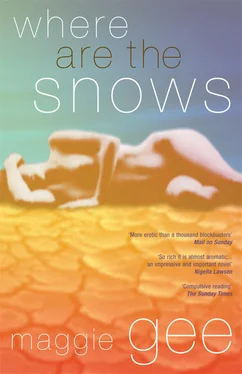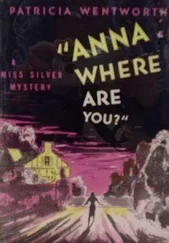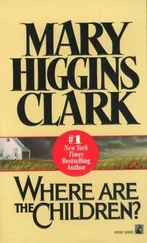Because of the children, of course. Leaving your children isn’t romantic. I’ll have to start with the children, if anyone is ever to understand what we did, and the punishment which has come upon us, because sometimes I do think we’re being punished — especially in the early hours, in the darkest, emptiest hours of the night.
It’s three in the morning. The frogs have gone quiet. I miss them, they were company. I feel like the only thing left alive.
I even miss the children…
Susy and Isaac. For me the names were a pair. I thought they would always go together… quick, the children. Susy and Isaac. They were seventeen and nineteen when we left.
Isaac was the elder, and good at art. We rather hoped he would be a painter. I myself have always loved looking at pictures, though Christopher preferred the moving kind. From that point of view I was quite a good parent, praising the weirder things he did, occasionally taking him to galleries when it would have been more fun to have gone with a friend…
Some teenage boys are tremendously attractive, but Isaac wasn’t one of them, I’m afraid.
He was clumsy, and tended to spots. He had thick black hair and quite nice eyes, but he always wore horrible heavy-rimmed glasses. His face was on the puddingy side, where his father’s was rugged and interesting. He had his father’s nose, but more crudely drawn.
He asked me if he was good-looking one day when we were standing at the gate of his school waiting for a boy who was coming to tea. I suppose he was comparing himself to all the other adolescent faces streaming past. I never lied to the children if I could help it. I said I thought he would get better with age.
‘You’ll be like your Dad, you’ll see. The women will be wild for you in your late twenties.’
I got it wrong, of course, no teenager likes to be referred to the future, it merely reminds them of all they’re too young for. His face got pinker and he looked at the ground. I tried to comfort him.
‘If you like, we’ll go clothes-shopping this weekend.’
‘I’m busy this weekend.’
‘Take it or leave it. We’ll go to Harrods.’
Resentfully, ‘OK. If you’ll buy me a black leather jacket.’
I was always happy when they asked for things, always happy to buy them things. I’ve always enjoyed giving presents. But it wasn’t enough for Isaac.
He was a serious boy who did things slowly and wanted to know what they really meant. So he tended to get left out of conversations while more facile voices spoke. Mine, for instance, OK, I know. At the rare dinner-parties they deigned to attend, Susy and Isaac used to glare at me when I kept the conversation going, and left the room early, before coffee, with helpless downcast looks of distaste. Yet they talked and shrieked enough together when they were on their own up in one of their bedrooms…
I wish they still talked like that. I wish they could always have supported each other. It would have let their father and me off the hook if they’d gone on being allies, wouldn’t it?
They had phases of liking me. We did best when we kept things light. I didn’t let them draw me into any of the deep dark feelings adolescents love to drown in. Chris had to deal with those. I was just a kind of bracing, cheery older sister, attempting to drive them to the edge of the nest in good enough shape to fly away — though in point of fact, we flew away.
To be truthful, they frustrated me. Of course they weren’t my children, but perhaps I had a feeling that if they had been they would have been more beautiful, more indisputably intelligent and gifted. They weren’t exactly dull, but they weren’t outstanding.
It didn’t reflect awfully well on Chris, unless we blame it all on Penelope. But Penelope and Chris were both strikingly good-looking, and she took a First in Law…
Chris wanted Isaac to go to Oxford like he had, but Isaac said Oxford was out for art. So Chris said he’d heard there was rather a good History of Art degree at Cambridge.
Isaac said Chris was obsessed with Oxbridge. ‘You wouldn’t have told Van Gogh to go to Cambridge.’
‘No, but I wouldn’t call you Van Gogh.’
‘You think you’re so bloody clever and crushing,’ Isaac said, very red, on the edge of tears. ‘I’m quite a good painter, actually. You know fuck all about art.’
‘Don’t swear at your parents,’ Chris said mildly.
‘ Alex swears,’ Isaac said.
‘That’s because I’m ill-mannered, and older than you.’ (I don’t like quarrels; I like to make peace.) ‘But I think you’re right about Oxbridge.’
At junctures like that, Isaac would smile at me, grateful to have an ally.
He wasn’t so tall as his father. He wasn’t so handsome as his father. He wasn’t good at games, like his father. He didn’t attract the girls. I thought all this was hard on Chris, but it must have been worse for Isaac.
‘I think he takes after Uncle Cedric,’ Chris said one evening in summer, one long-ago summer evening — oh God where have those gentle evenings gone — as we watched Isaac come up the path to the door. It had rained, the sun had come struggling through, and Isaac pushed between the shining wet laurels which drooped across his way. His walk was always faintly dejected, and his school bag dragged him down to one side. With those heavy glasses and his heavy hair, a lot of his face was hidden, but there was still rather too much of it, sober cheeks and soft chin.
Chris was right, though I’d never noticed it before. I’d only met Cedric once; an eccentric bachelor who lived in Tangier. But his feet turned slightly in, like Isaac’s, his shoulders were narrow, he bumbled.
‘— Only in build, I mean,’ Chris added, for Cedric liked limp brown boys. ‘I hope he finds a girlfriend soon. Might, you know, sharpen him up a bit.’
I couldn’t deny that would be an improvement. ‘But don’t ever say things like that to his face. It’s a very sensitive age.’
A sullen voice behind us said, ‘That’s typical. Always patronising us. I’m going to tell Isaac what you said.’
And that, I’m afraid, was Susy, who had come into the front room silently and stood there eavesdropping. She must have been very cross to have bothered to talk. Susy was mostly too lazy to talk. It was her characterising trait, being lazy; not the most auspicious characterising trait.
I find it hard to describe her, partly because of all that’s happened since, but I always did find it hard to describe her…
There’s no way of saying this which doesn’t sound odious. Think the unthinkable. The truth about Susy is that she was very pretty in a slightly common way.
I’m trying to be truthful, not likeable. Susy herself was immensely likeable. Not to me or her father as a teenager, that would have been too much to ask, but to other children, when she was small, and their mothers, and teachers, and next-door neighbours, and dentists, and people choosing teams or partners or princesses for the school play. And she didn’t look common as a child. No child looks common, however pretty — few things smaller than the norm look common.
When I first met Susy she was four years old with fair curly hair and dark red cheeks. It was summer, she had been out in the sun, her small pointed nose was prettily freckled and her mouth was what people have been calling ‘a rosebud’ ever since metaphors about lips began.
She smiled at me with all her might. The rosebud opened in a dazzling smile. Of course I wasn’t her stepmother then, I belonged to the ninety per cent of the world whom Susy effortlessly charmed. I confess she looked like a bonus that day; I’d have Chris, with this lovely little girl thrown in… alas, her bonus-value didn’t last long once she realized I would be replacing her mother. She was violently sick at our wedding, a stream of pink vomit, mostly jelly, all over the carpet and my good snake shoes.
Читать дальше












